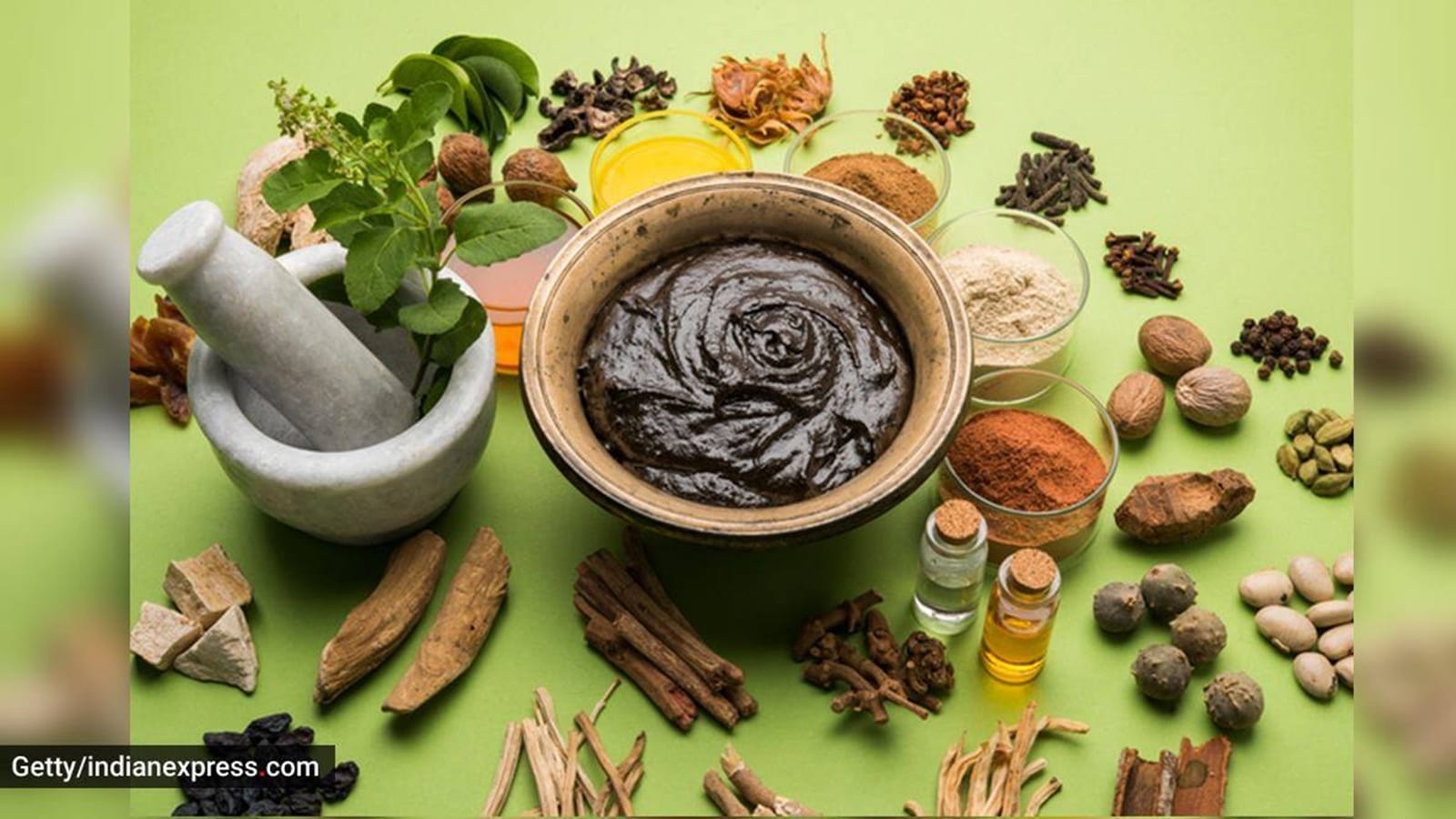
5 POPULAR AYURVEDIC HERBS FOR HEALTH, IMMUNITY
Count on these ayurvedic herbs; here's why (Source: Getty Images/Thinkstock)
Growing up in an Indian household means having ‘ghar ke nuskhe’ ready even at the whiff of a sore throat. In the era of pills and tablets, our moms and grandmoms have managed to keep some wisdom of natural herbs alive. Traditional medical systems like Ayurveda in India, Traditional Chinese Medicine, and Greco-Roman medicine have been used for eons to treat diseases.
Let's understand more about popular Ayurvedic herbs from functional nutritionist Suyash Bhandari, chief, iThrive Essentials, (supplements vertical).
Amla
Amla (Emblica officinalis) is an Ayurvedic herb that has all parts, including the fruits, used for preventative and therapeutic purposes.
According to Bhandari, high levels of ascorbic acid vitamin C, and large amounts of tannin compounds make it a potent antioxidant and aid in repairing pancreatic tissues. "Amla is especially helpful for patients with diabetes as it reduces blood glucose levels due to the presence of chromium, a mineral that makes the body more responsive to insulin," said Bhandari.
The recommended dose of Amla is 1-3 g daily to reap the most benefits. You can consume amla raw as a fruit or in tablet or powder form. However, steer clear of tablets as they could be processed.
Ashwagandha
Ashwagandha is called the king of Ayurvedic herbs. It is classified as an adaptogen due to its role in alleviating stress and anxiety by reducing cortisol levels. Bhandari mentioned that there’s also growing literature on ashwagandha for improving sleep duration and quality even in people with insomnia. "It is a remarkable herb for athletes to improve muscle strength and recovery, increase muscle mass, and enhance cardiovascular support. It has also been known to increase testosterone levels and improve reproductive health," said Bhandari.
Turmeric and curcumin
Turmeric or extracts of turmeric (curcumin) have been used for ages to treat conditions especially rooted in inflammation such as heartburn, headaches, and diseases such as irritable bowel syndrome and gastritis. "It fights oxidative stress and can also improve insulin sensitivity and blood glucose levels. Curcumin is not the most bioavailable when taken orally due to low absorption by the small intestine, so always go for supplements that add ingredients like piperine to aid absorption," said Bhandari.
The ideal dosage ranges between 500-2000 mg per day and some studies have also used 600 mg five times daily for one month. You can add it to your food or also buy it in supplement form.
Here's how turmeric and curcumin help (Source: Getty Images/Thinkstock)
Holy Basil
Holy Basil or tulsi has been found to enhance liver protection and has antioxidant and anti-fertility properties. The compounds including eucalyptol, camphor, and rosmarinic acid, give the plant its antioxidant effects. Bhandari said that it also falls in the category of adaptogens as it reduces stress levels and is shown to reduce symptoms of general anxiety disorders. Apart from this, Holy Basil also supports the immune system and reduces cadmium build-up in the body, said Bhandari.
A daily dose of 500 mg of the leaf extract taken twice is beneficial for adaptogenic as well as neurological effects.
Shilajit
Shilajit is a blackish-brown rock that is mainly cultured in the Himalayan and Hindukush ranges. It has been used for centuries in Ayurveda as a rejuvenator and as an antiaging compound. "It is a cognitive and memory enhancer, powerful antioxidant, and immunomodulator, exhibits anti-inflammatory, antifungal, and antiallergic properties, and increases testosterone levels," said Bhandari.
The ideal dosage of Shilajit is 200mg (54.8 per cent fulvic acid) daily for at least 90 days. However, it is important to beware of commercialised products containing Shilajit as they can contain heavy metals such as lead, mercury, and arsenic.
What to keep in mind?
Bhandari stressed that you should always make sure that you source your herbs from organic sources and consult a qualified practitioner for a more targeted approach. "Herbs can protect against various pathogens, infections, and other disease-causing factors, and help you live a happier and healthier life," said Bhandari.
2023-11-26T03:15:38Z dg43tfdfdgfd